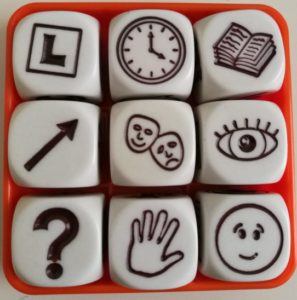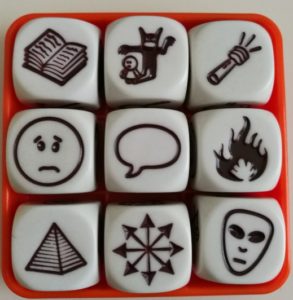The Knack
My dad passed away quite suddenly when I was 17. Today would have been his 70th birthday, and he’s been on my mind a lot lately.
When I was little my dad was often self-employed. He had been made redundant from his job when I and my sisters were quite small. For most of our childhood he had a stall at markets around the North West and in Scotland. I remember bagging biscuits at our dining table from huge boxes. I remember bundling tea towels and dusters, taking five and folding them a certain way, throwing a rubber band around them to hold bundles together. Seriously, I remember those afternoons quite fondly.
In the summer holidays my dad would let me help with various games he ran at fairs and carnivals. My favourite game was one where you had to throw a small wooden ball into a metal bucket. The bucket was inside a wooden frame, painted to look like a clown’s mouth; you just stood at a distance and tried to throw the ball in. This was the 1980s, so it was only 20p for three balls, and the spectacular prize was a coconut!
I remember the call still, “Ball in the bucket to win, just a ball in the bucket to win!”
It was not easy. For a start, the bucket was pitched at an angle that encouraged the ball to rebound. The balls were ping-pong sized and dense: if you threw too hard they would bounce right back out. If you threw too soft, you might not get the ball in the target at all. Overarm shots always span out.
“Ball in the bucket to win, just a ball in the bucket to win!” he would call out and throw the ball and DING! there it would land. Most people paying their 20p had never tried it before, never thought of playing anything like this. It was just something fun to spend 20p on.
There was no great trick, there was no con involved: it was just really hard. My dad had the knack though. He’d mastered this really hard skill. He’d found a challenge he knew was tricky, but spent a lot of time practising. He could throw the ball just so and have it land in the bucket every time. He made it look effortless, but that’s because the effort had been put in over years.
I tried and tried, failing many times, but still remember the first time I got my own DING! I kept going, and while I wasn’t as precise as my dad, I started to reach a point where I could get the ball in the bucket consistently. Practice, experience, nothing more.
Back to the present: your PhD is hard, but there are aspects of it you make seem effortless to others. That’s not to say it’s not still hard to you, but you can do it. You’re practised, you’re experienced. At the viva you can answer a question and engage with a discussion nearly every time because you’ve done so much during your PhD.
After all this time you have the knack.

